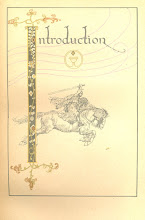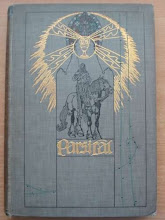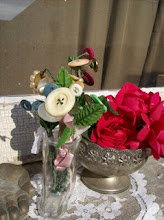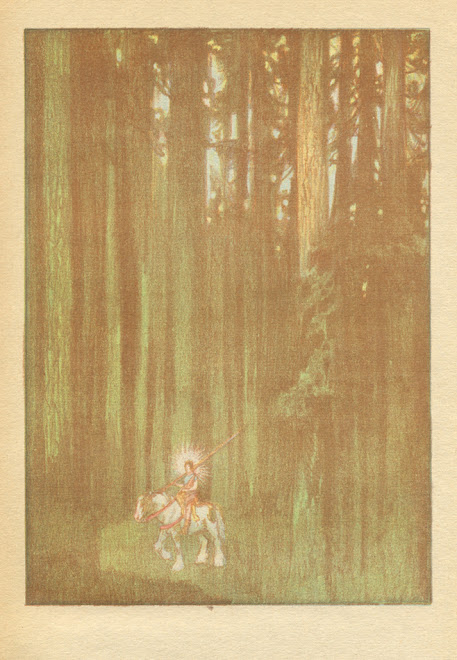I want to be honest in these postings about all the various aspects of being a working artist. There are some serious hurdles to face in the journey toward a solid career in any creative field, and there are great rewards as well. In my music journalism, I work a lot with up-and-coming indie bands who need every boost they can get, and I have a lot of artist friends, so I am always happy to pass on and share any information that might be of use to anybody. I want to use my blog to chronicle some of my efforts towards getting my books polished and published, in hopes that the accounts will provide some helpful information to other artists.
As a step toward realizing my book project, I recently attended the San Diego State University Writer’s Conference. I am a member of Mediabistro’s online subscriber community (www.mediabistro.com), and I take some of the professional development classes that they offer. I attended one with advice on how to get a literary agent, and the instructor suggested that particular conference to us as one of the better ones on the West Coast, so I went. I found it a valuable learning experience. I went with no expectation of landing an agent or publisher there (though I seemed to be somewhat iconoclastic in that; the hopefulness in the air was palpable). I just wanted to attend the seminars and to talk to the publishing industry people who would be there so that I could get some outside perspective. My books are very unusual, and I need to figure out the best kind of publisher to approach in order to get them out there. They straddle a line between poetry, fantasy, and Jungian/archetypal psychology. They are based on Arthurian literature, are written in verse (rhyming couplets to be exact), and are very colorful in their storytelling. The first one, The Flower of Knighthood, is based on the medieval epic Sir Gawain and the Green Knight and the second one, Parsifal, retells the story of the Holy Grail and the innocent knight who found it. They are part of a series which is going to be at least four books long; two more volumes are in the works, regarding the life of Arthur and the further adventures of Gawain. I love my books, and have sacrificed many, many things in order to make them. Nothing else comes close to the joy I get from creating art, and the books are truly art, because they are something that I poured my whole heart and soul into. Merely writing them has been a rich reward in and of itself, but I do want to share them. I know I have an uphill battle in publishing and marketing them because they are strange, but I am not at all interested in changing them just to get a book contract. If I yearned to get rich, I would not be a writer. The integrity of my art is more important to me than money, and, possessing the kind of personality that would sit for several years at home writing epic poetry, I certainly have the patience to wait in order to place them with the right publisher. If all else fails and I can’t find a publisher sensitive enough to let me be myself, I will join the likes of William Blake and his kitchen table press and put them out myself. I do hope I find a publisher for the sake of distribution if nothing else – I’d much rather keep writing books than spend all of my time administering their way into the marketplace, but I’ll do what I need to do to preserve my creative vision. It's no different than releasing independent music, which is something I respect, and I very much have a DIY ethos, so it might be right for me after all; time will tell. With all of that in mind, I visited this conference as a fact-gathering exercise.
I made advance appointments with two agents and one editor to discuss my first book. All of them work at least part-time in the fantasy genre, one of the areas in which I wanted to gauge possible interest. The first agent was highly encouraging and thought The Flower of Knighthood was very saleable as a fantasy work with a different approach to it than just a novel, especially since I am creating a series. He made some recommendations for people to contact, and he took my ten-page sample and one-page synopsis and my business card. He was very complimentary about it, thought my book was very creative and predicted that I would find a niche for it, stressing that I should find people specifically in poetry or fantasy and not ever bother with any kind of general interest publishing house. He also gave me some good advice about ideas I had regarding licensing and tie-ins with further developments like a graphic novel. The other two contacts were much less positive. The second agent suggested I rewrite the entire thing as a regular novel. She was very nice, but didn’t think I would ever place it with a publisher as a verse work. The book editor suggested I rewrite the entire thing still as a poem but in a completely different metrical style, broken into stanzas more like the structure of the medieval epic, which is the exact thing I was trying to avoid - I am not copying The Green Knight, I used it as a jumping off point for an original work of my own devising. (Did I mention this book took me two years of solid effort to write as a rough draft, and more than two additional years of editing work to craft to its present state of near-completion? Needless to say, I am not going to rewrite it.) The editor did an advance reading of the ten-page sample, and I did not agree with the notes he wrote and returned to me, but it was very helpful to know what I am facing in trying to publish these works. He did not understand what I had done, line edited it to his own taste without regard for mine and said something negative that I felt was uncalled for, but then he turned around at the end and admitted that it was an impressive poetic achievement – despite his criticisms, he finally had to admit that the project's got integrity. He only saw ten pages, because that is all the conference organizers allow, so to be fair to him, that is not enough to judge it on. I chose him for feedback because he is with a mainstream fantasy company, and I wondered if that kind of publisher would have any interest in this kind of thing, and he said that his particular company would not, which was unsurprising.
I knew from the conference information that none of the available industry people were the perfect ones to talk to for my specific project, but the event did not have the widest range of possible people to consult with so I picked the best from what they had to offer, and I did find them helpful in their radically differing viewpoints. There are plenty of other conferences, including a poetry one coming up in the spring, and I am going to follow up on every lead I was given, and look for more. The books are definitely in the realm of Arthurian fantasy, but as I said above, they are also based on archetypal psychology, and I think that the latter area may be the best one for me to target. I think that Jungian people will be more apt to understand the concept I am trying for. (I’ll blog later about the overarching theme of the books – this post is already monstrously long.) This whole process is very like my freelance writing, where you have to narrowly focus your story pitches to hit the exact niche covered by a particular publication. I have much more experience with magazine publishing than with books, but I’m learning fast, and a lot is portable between the two.
The conference seminars were hit or miss. Some were so dull or basic I walked out and went to others, but there were always several going on at once; some were good, and one was excellent. That one was a talk given by another agent, and he said that since most of us would not find a home with the major publishers, we really don't need an agent to start with, but should just submit to likely small-to-midsize independent houses or academic publishers, then get an agent or lawyer if we actually get an offer, in order to have them negotiate it for us. He said almost any agent would take someone who has a deal on the table, no matter what kind of book they had written, because at that point the book is as good as sold and it’s just a matter of getting the best terms for it. I thought that that made a lot of sense. That was more along the lines of my general plan anyway, with a book whose format is not as commercially definable as, for example, a historical novel.
What this whole experience cemented for me was that writing the books was worth every bit of effort and even if I never published them, merely making them was about the best thing that has ever occurred in my life. I loved researching and writing the books and I enjoy reading them, and I believe that others will, too. I do want to put my books out there, I want them to be presented as well as possible, and if I need to self-publish them at some point to achieve the quality that I want, I am willing to do that, but I also want to exhaust all of my resources before I do so because I got enough encouragement to think that there might be someone who understands what I am trying to do. The whole thing was worth the effort and money, and for a first conference, it was about what I expected. I also met some very cool people who attended, and made a new friend, another writer who shares some of my interests and with whom I have a lot of background in common. The feedback she received was about like mine, some encouraging, some deadly. This is all part of being a writer, and I feel good about being able to take it all in and winnow what might help me from what won’t.
Thursday, January 31, 2008
Subscribe to:
Post Comments (Atom)









No comments:
Post a Comment